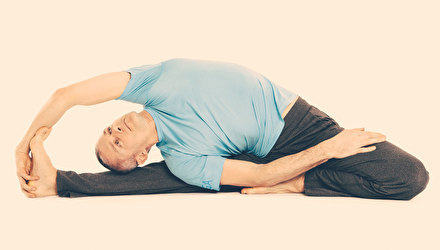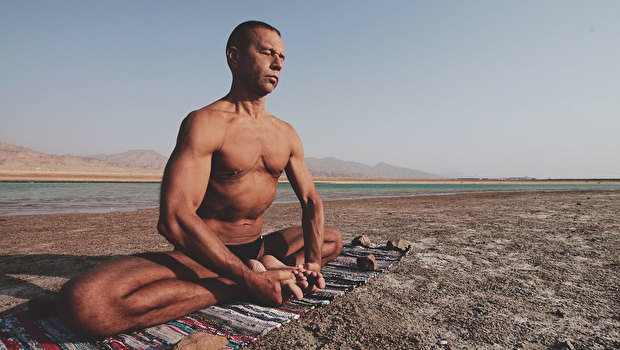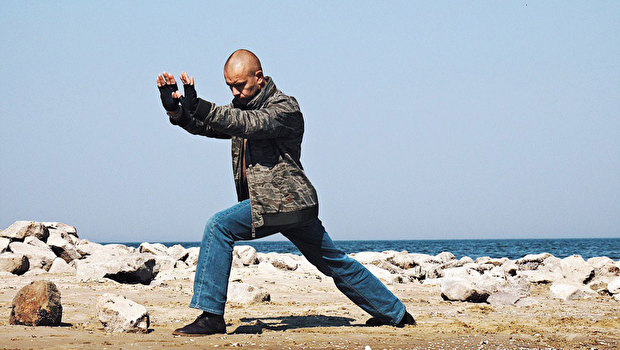There are two types of psychological time - "fast" and "slow". In fact, we are talking about the perception of time in the field of first attention. Time is perceived as "fast" with a high level of mental activity. Vivid emotions, regardless of their color, the need to quickly process large amounts of information, active thematic communication, a dense stream of social interaction, an intense thought process, the processes of implementing creative ideas, the bustle of the mind, etc., stimulate the perception of time as “fast”. "Slow" time "happens" when "as luck would have it on purpose" nothing happens. Calm detached contemplation of the stream of objective reality slowly floating past is a typical mode of operation of the first attention in the stream of “slow” time. Deconcentration at the level of the first attention in the stream of "slow" time causes the perception to "notice" the outer "frontal surface" of the first attention sphere, which is the "inner surface" of the second attention sphere. "Slow" time contributes to the fact that the first and second attention "find a common language" at the level of direct perception. The second attention provides perception and control of the "nagual" - that which is "beyond the reality denoted by words", that is, direct perception and control at the level of the information matrix and the sphere of intention-awareness. The first attention is the perception and control of everything else - the perception and control at the level of structure and energy, or "tonal". In the mode of "fast" time, the first attention is "curtailed" and obsessed with work using the virtual-code and structural-energy resources of the "tonal". Thus, the possibility of including the work of the mechanisms of the second attention in the action of the sphere of active perception is completely cut off. Thus, in order to, say, get a creative entry into action from the level of "tonal reality", or Tao, it is necessary to spend a certain time in a "slow" state. In this case, the "fast" time of the actual process of creating an object of creativity will be a natural functional result of the "information work" of the integrated components of attention - the first attention and the second attention in the "slow time" mode. "Fast" time accelerates the aging process of the body, since metabolic processes accelerate with intensive use of system resources. Deep stable immersion in "fast" time can lead to an acceleration of the deep rhythm of the body, respectively, to the acceleration of biological time and faster wear of organs and systems. A balanced alternation of periods of "fast" and "slow" time is a vital necessity for the constructively harmonious action of any conscious system - from a single organism to any egregor and general species society. "Right doing" can only take place when it is balanced by "right not doing".
Psychotronic practice in structural and energy terms is “reverse” to the flow of “movement through life”. Psi-practice compresses the spring. The straightening of the spring is the flow of action and awareness “through life”. The development of a structural-energetic design of a new quality of awareness is the only meaning and result of the process of life as such. Psi-practice is the only way to “roll back” in the flow of subjective time back, restoring and reforming system resources for more successful movement in the “direct” direction of the flow of awareness. Just like the flow of awareness, the flow of practice in the process of “rewinding subjective time back” has a “fast” and “slow” phase. The “fast” phase is a structural-energy and geometric practice, the “slow” phase is the practice of contemplation. The presence of only one of the phases hopelessly destroys the harmony of the distribution of the energy-information potential of the practice. Thus, the practice is emasculated and becomes unable to fulfill its only task - "to compress the spring of being" for the next "jump into the unknown" ... And for some, perhaps into the "unknown". Both "fast" and "slow" times of practice are reversed in the subjective direction of the "fast" and "slow" times of the process of awareness "in the course of life." The periods of intensive practice (training intensives) should be filled as densely as possible with “fast” and “slow” time of the “spring-compressive” direction. The inclusion of "slow" and, in particular, "fast" "lifetime" in the flow of "practice time" destroys its psi-effect. The spring unwinds without having time to compress properly. Hence the relatively low efficiency of conducting training intensives in the practice mode. More effective retreats are organized in such a way that the "direct" flow of time during their conduct would simply have nowhere to come from. In the case of a workshop, “falling out” in “direct” time in the intervals between classes is inevitable.

But even under retreat conditions, the ratio between “reverse fast” and “reverse slow” time should be harmonious. Short periods of time between classes do not allow the state of "slow" time to develop properly. Therefore, retreat schemes are optimal, in which significant pauses are provided between classes. Anyone who has repeatedly had to start a mechanical alarm clock knows that it is better to underdo it than to overdo it. The failure of the spring disables the system - and either repair or replacement of the system is required. Upon reaching a certain density of the "psychotronic effect", the practice turns into a tool of self-destruction, since the system is not able to structurally and energetically implement information changes due to the insufficiency of the structural-energy resource. However, the introduction of a correction at the level of the information matrix is an "act of Intention" - "Eagle's command". The system cannot disobey, and therefore overspends the available resource. Hence the limited duration of effective retreats and workshops. Too long retreats* are destructive, too long workshops** are pointless.
* Practicum is a training intensive, which is carried out "without interruption" from everyday or resort reality.
** Retreat is a training intensive, which is carried out in conditions that completely exclude the possibility of contact between practitioners and everyday everyday reality.








